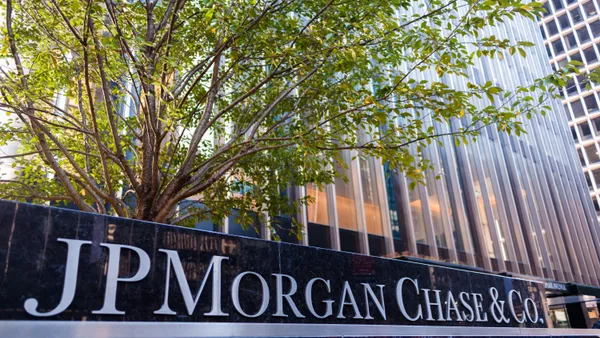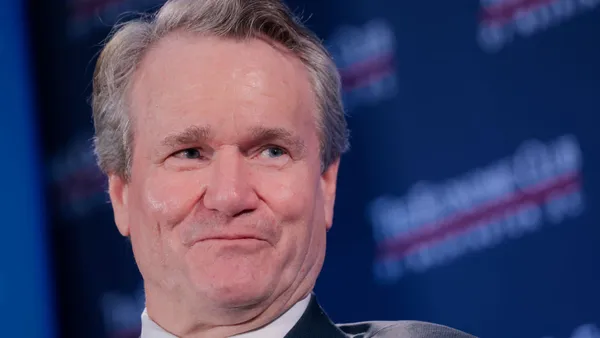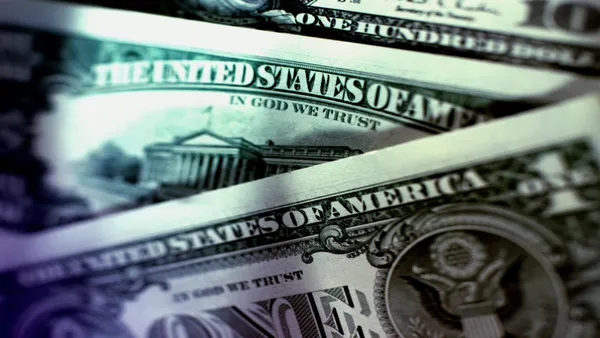LAS VEGAS — Trust is perhaps the most crucial currency in which challenger banks trade, three veterans of the space said Tuesday in a panel discussion at the Money20/20 conference.
"You build trust currency over time," said Colin Walsh, CEO of Varo. "That's important when [customers] can't walk into a physical branch and look someone in the eye."
Walsh and fellow panelist, CEO Chris Britt of Chime, walked a tightrope of trust this month. A glitch at Galileo, the application programming interface-based payment processor that serves both companies, caused minor processing delays at Varo and a full-on outage at Chime, taking down the fintech's website and app, and halting card transactions and ATM functionality.
A flawless customer experience is neither realistic nor a digital company's most valuable asset, the panelists said. "It's how you react," said Judith Erwin, CEO of Grasshopper Bank, which launched in May to target the entrepreneurial and venture capital market.
"Our payment processor has been experiencing issues today, resulting in our app + website being down," Chime said in a tweet during the outage Oct. 17, according to PYMNTS.com. "We can assure you all account information remains secure, and no personal or financial data is at risk."
Britt called the outage "an amazing learning experience for us," noting that the majority of customer feedback in the wake of the incident was positive and encouraging.
'A different set of behaviors'
Trust currency isn't limited to challenger banks. Big banks risk losing customer trust by virtue of their business model, Erwin said. "They're sales-led, not product-led [or user-led] and that creates a different set of behaviors," she said.
Those behaviors aren't purposefully malicious, Walsh said. "I don't think there's any ill will on the part of [big] banks," he said. But they can create a stratified market.
Varo aims for its customers to build resiliency and save for the future. "We wanted to reinvent banking so it's not a system of haves and have-nots," Walsh said.
Big banks are hardly suffering. The top five banks account for more than 55% of U.S. deposits, Britt said. "That's up from 7% or 8% in the 1990s," he said.
But some of their entrenched behaviors can leave customers feeling "underserved and overcharged," Walsh said.
"All of the big banks make $1 billion a year in overdraft fees per year," Britt said. "That's a sizable profit pool to attack."
Erwin said it costs Grasshopper $1.13 to execute a wire transfer. "Big banks charge $25," she said. "I could charge a 500% markup and still be at 20% what big banks get."
Serving the 28%
The catch, Walsh said, is that big banks can't afford to leave their charging models — to the detriment of innovation.
But that's not to say big banks don't serve customers well, Britt said, noting that Chase has a five-star app in Apple's App Store.
Walsh replied, "They do a fantastic job serving the 28% of people who are financially healthy."
Nonetheless, big banks' attempts to stretch into digital lending haven't always gone to plan.
"Finn closed down," Walsh said, referring to JPMorgan Chase's short-lived millennial-focused banking app. "You can't put lipstick on a pig. They're trying to dress up an old banking system."
In a separate panel earlier in the day, another fintech leader expressed doubt that big banks fret what challengers are doing.
"I don't think [JPMorgan CEO] Jamie Dimon wakes up and worries what Green Dot is going to do," Green Dot CEO Steve Streit said Tuesday at Money20/20.
Similarly, Britt sees innovation in the challenger space as opportunity. "I don't get caught up in 'so-and-so launching a product,'" he said. "If they do, that bodes well for us" as early adopters.
Streit said the point is not to change with the times but to make the times change.
Three years ago, big banks didn't have to partner with fintechs, Erwin said. That is changing.
Challenger bank leaders' views, too, are changing when they look into the future. "In five years, I see Varo [following a model closer to] Netflix, Instagram and Pinterest than to Bank of America or Wells Fargo," Walsh said.













